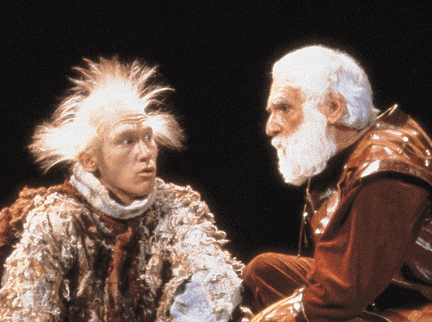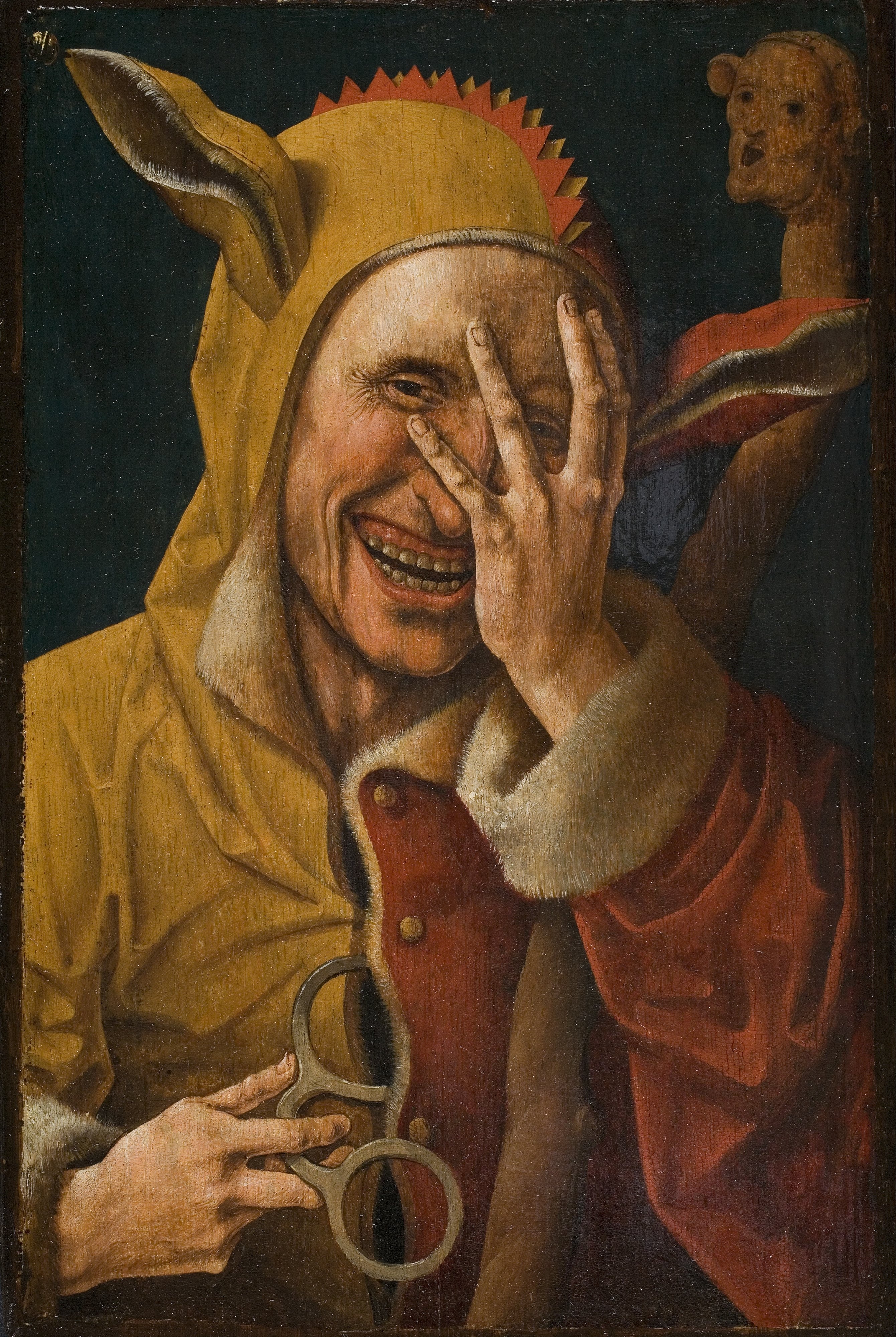The fool is traced back to ancient times- in the Middle ages, a jester, and in Renaissance who is familiar servant in an aristocratic home.
They were often regarded as pets or mascots- they were there to amuse, but also to criticise their masters and guests.

In medieval times jesters entertained with a wide variety of skills: principal ones included songs, music and storytelling; additional ones included acrobatics, juggling, telling jokes and magic.
The fools were primarily there to provide witty commentary on contemporary events as well as remind the king of his humanity. This is exactly what the fool does for Lear.
However, there was a crueler side whereby some of the fools were mentally deficient and physically deformed, requiring the protection of powerful patrons to avoid abuse. This shows a darker side of being a fool where people laughed at them rather than with them.
NATURAL VS PROFESSIONAL FOOL
For the fool, distinctions were made between the natural fool and the professional fool.
The natural fools were seen as almost as supernatural. They had a prophetic quality to them- the fool in King Lear obviously falls into this category. Whereas for a professional fool it was a merely a job that allowed them to act. The natural fool was seen as innately nit-witted, moronic, or mad, the licensed fool was given leeway by permission of the court. In other words, both were excused, to some extent, for their behavior, the first because he "couldn't help it", and the second by decree.
Follies could be disregarded as the ravings of a madman or divinely inspired: the 'natural fool' was often seen as touched by God
Much to Gonerill's annoyance, Lear's 'all-licensed' Fool enjoys a privileged status. His characteristic idiom suggests he is a "natural" fool, not an artificial one, though his perceptiveness and wit show that he is far from being an idiot, however "touched" he might be.
THE FOOL IN SHAKESPEARE'S PLAYS
Shakespearean fools are usually clever peasants or commoners that use their wits to outdo people of higher social standing
The role of the fool was popularised by Robert Armin in The King's Men as opposed to Will Kempe's clowns.
"Armin's fool is a stage presence rather than a solo artist. His major skills were mime and mimicry; even his improvisational material had to be reworked and rehearsed. His greatest asset was as a foil to the other stage actors."
They increased in popularity between 1598 and 1605 as shown by fools in WS's work
Fester- Twelfth Night
Lavatch - All's Well That Ends Well
The role was popular + significant; Shakespeare extends it in King Lear so that folly becomes a dominant theme. Popular fools in real life were Archie Armstrong and Will Sommers.
Like other characters, the fool began to speak outside of the narrow confines of exemplary morality, to address themes of love, psychic turmoil, and all of the innumerable themes that arise in Shakespeare, and in modern theater.

Clowning scenes in Shakespeare's tragedies mostly appear immediately after a truly horrific scene: The Gravediggers in Hamlet after Ophelia's suicide; The Porter in Macbeth just after the murder of the King; and as Cleopatra prepares herself for death in Antony and Cleopatra.
Nevertheless, it is argued that Shakespeare's clowning goes beyond just 'comic relief', instead making the horrific or deeply complex scenes more understandable and "true to the realities of living, then and now" by shifting the focus from the fictional world to the audience's reality and thereby conveying "more effectively the theme of the dramas"

This is amazing. You have saved my A-levels. Keep up the good work!!!!!!!!!!
ReplyDelete